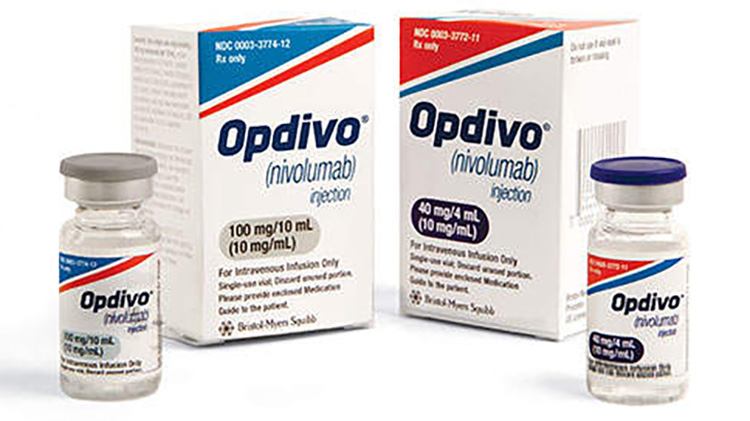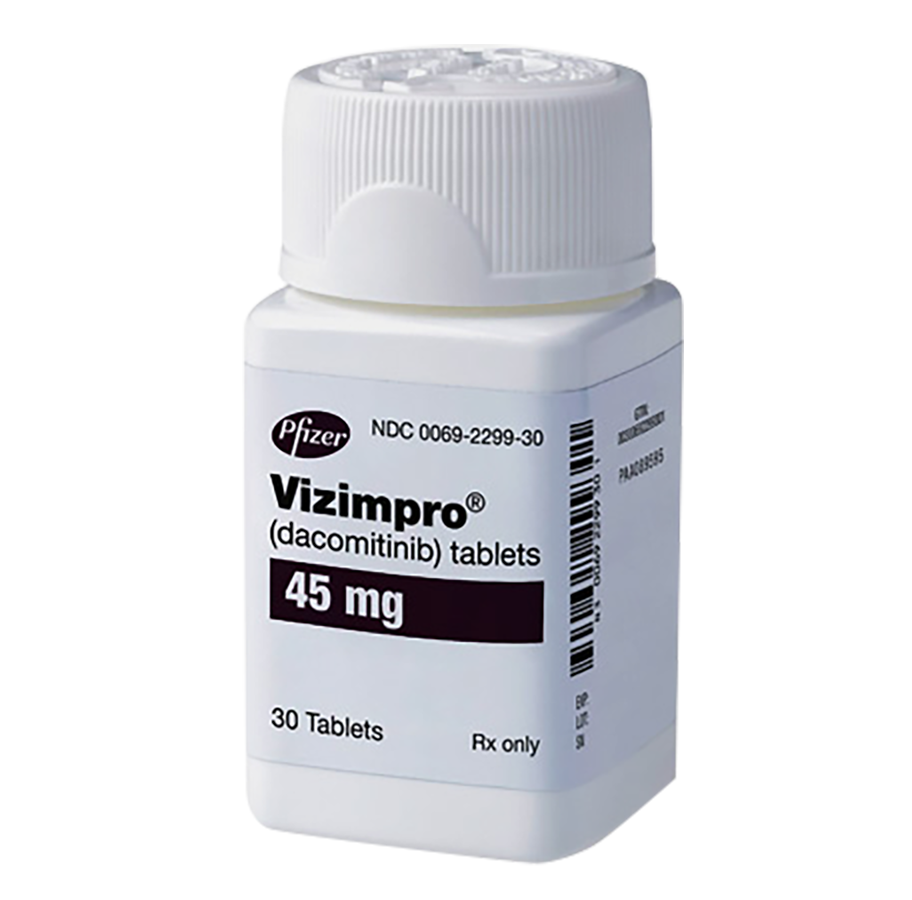Opdivo (Nivolumab) vs Vizimpro (dacomitinib)
Opdivo (Nivolumab) vs Vizimpro (dacomitinib)
Opdivo (nivolumab) is an immune checkpoint inhibitor that works by enhancing the body's immune response against cancer cells, primarily used in the treatment of various types of cancers including melanoma, lung cancer, and kidney cancer. Vizimpro (dacomitinib) is a tyrosine kinase inhibitor that targets specific mutations in the epidermal growth factor receptor (EGFR) and is used in the treatment of non-small cell lung cancer with EGFR exon 19 deletion or exon 21 L858R mutations. The choice between Opdivo and Vizimpro would depend on the specific type and genetic characteristics of the cancer, as well as the patient's overall health and treatment goals, which should be discussed with an oncologist.
Difference between Opdivo and Vizimpro
| Metric | Opdivo (Nivolumab) | Vizimpro (dacomitinib) |
|---|---|---|
| Generic name | Nivolumab | Dacomitinib |
| Indications | Various types of cancers including melanoma, lung cancer, kidney cancer, bladder cancer, head and neck cancers, and others. | First-line treatment for patients with metastatic non-small cell lung cancer (NSCLC) with EGFR exon 19 deletion or exon 21 L858R substitution mutations. |
| Mechanism of action | Programmed death receptor-1 (PD-1) blocking antibody, which promotes an immune response against cancer cells. | Tyrosine kinase inhibitor that targets the epidermal growth factor receptor (EGFR). |
| Brand names | Opdivo | Vizimpro |
| Administrative route | Intravenous infusion | Oral |
| Side effects | Fatigue, rash, musculoskeletal pain, pruritus, diarrhea, nausea, and others. | Diarrhea, rash, paronychia, stomatitis, decreased appetite, dry skin, decreased weight, alopecia, cough, and others. |
| Contraindications | Patients with hypersensitivity to nivolumab or any of its excipients. | Patients with hypersensitivity to dacomitinib or any of its excipients. |
| Drug class | Immune checkpoint inhibitor | Tyrosine kinase inhibitor |
| Manufacturer | Bristol-Myers Squibb | Pfizer |
Efficacy
Efficacy of Opdivo (Nivolumab) in Lung Cancer
Opdivo, known generically as Nivolumab, is a medication that has shown significant efficacy in the treatment of lung cancer, specifically non-small cell lung cancer (NSCLC). It is a type of immunotherapy that works by inhibiting the programmed death-1 (PD-1) pathway, which is a mechanism that tumors use to evade the immune system. By blocking this pathway, Opdivo helps the immune system to recognize and attack cancer cells. Clinical trials have demonstrated that Opdivo can lead to improved survival rates in patients with NSCLC, particularly in those who have previously been treated with chemotherapy. It has been found to be effective as a second-line treatment and, in some cases, as a first-line treatment when combined with other agents.
Opdivo in Advanced Lung Cancer
In advanced stages of NSCLC, Opdivo has been shown to extend overall survival compared to traditional chemotherapy. The CheckMate-057 study, for instance, revealed that patients with advanced NSCLC who were treated with Opdivo had a median overall survival of 12.2 months, compared to 9.4 months in those who received docetaxel chemotherapy. This improvement in survival was also accompanied by a greater response rate and fewer severe side effects. Such findings have supported the approval of Opdivo for the treatment of patients with metastatic NSCLC whose disease has progressed during or after platinum-based chemotherapy.
Efficacy of Vizimpro (dacomitinib) in Lung Cancer
Vizimpro, with the active ingredient dacomitinib, is a kinase inhibitor used in the treatment of a specific type of lung cancer known as NSCLC with epidermal growth factor receptor (EGFR) exon 19 deletion or exon 21 L858R substitution mutations. These mutations lead to the activation of EGFR, promoting the growth of cancer cells. Vizimpro works by irreversibly inhibiting the activity of EGFR, which can lead to reduced tumor growth and potentially shrinkage of the tumor. In clinical trials, Vizimpro has shown a significant improvement in progression-free survival compared to other EGFR inhibitors, such as gefitinib, in patients with previously untreated, advanced NSCLC with EGFR mutations.
Vizimpro as a First-Line Treatment for NSCLC
The ARCHER 1050 study, a pivotal phase III trial, demonstrated the efficacy of Vizimpro as a first-line treatment for patients with NSCLC harboring EGFR mutations. The trial showed that patients treated with Vizimpro had a median progression-free survival of 14.7 months, which was significantly longer than the 9.2 months observed in patients treated with gefitinib. Moreover, Vizimpro also showed an improvement in the duration of response, underlining its role as an effective first-line therapy for this specific patient population. However, it is important to note that Vizimpro is associated with its own profile of side effects, and its use should be carefully considered by healthcare professionals in the context of individual patient needs.
Regulatory Agency Approvals
Opdivo
-
European Medical Agency (EMA), European Union

-
Food and Drug Administration (FDA), USA

-
Health Canada

-
Pharmaceuticals and Medical Devices Agency (PMDA), Japan

-
Therapeutic Goods Administration (TGA), Australia

-
Medsafe (NZ)

Vizimpro
-
European Medical Agency (EMA), European Union

-
Food and Drug Administration (FDA), USA

Access Opdivo or Vizimpro today
If Opdivo or Vizimpro are not approved or available in your country (e.g. due to supply issues), you can access them via Everyone.org.
How it works

Make an enquiry
Choose the medicine you want to buy, answer a couple of questions, and upload your prescription to speed things up. We’ll get back to you within 24 hours.


Make an enquiry
Choose the medicine you want to buy, answer a couple of questions, and upload your prescription to speed things up. We’ll get back to you within 24 hours.


Breeze through the paperwork
We'll guide you through the required documents for importing unapproved medicine, ensuring you have all the necessary information.


Get a personalized quote
We’ll prepare a quote for you, including medicine costs and any shipping, administrative, or import fees that may apply.


Receive your medicine
Accept the quote and we’ll handle the rest - sourcing and safely delivering your medicine.

Some text on this page has been automatically generated. Speak to your physician before you start a new treatment or medication.
Let's talk
If you have any questions, call us or send us a message through WhatsApp or email:
Contact us




